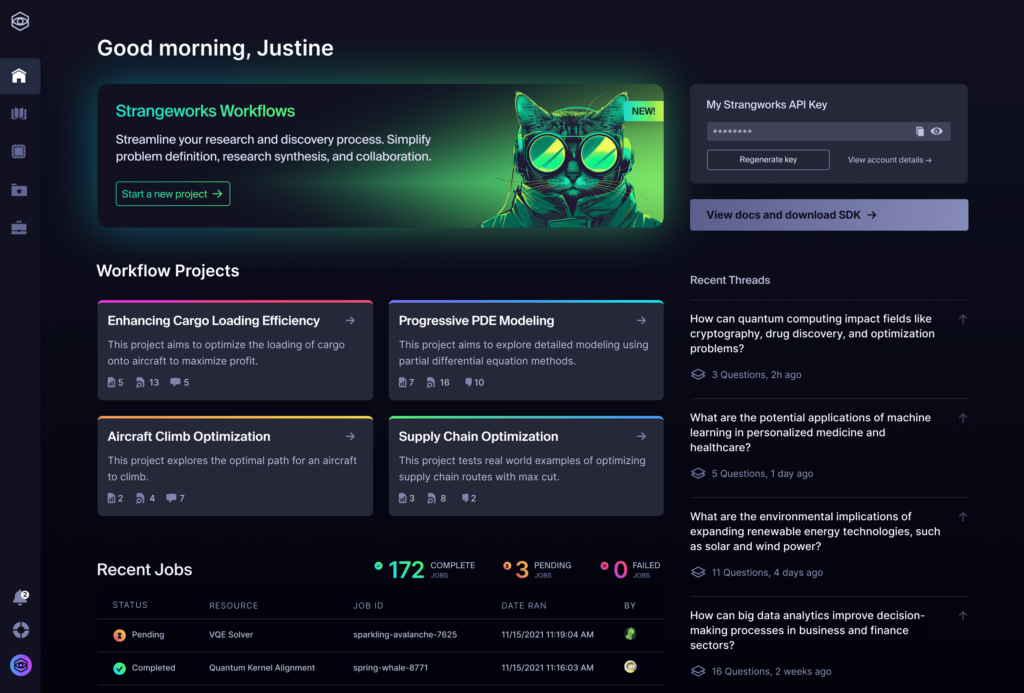With news that a South Korean research team created a superconducting material — LK-99 — that reportedly operates at room temperature and at ambient-pressure, the scientific world — and even the mainstream media — are speculating how this technology could be tapped and what would be the resulting benefits.
The inventors of the room-temperature superconducting material — LK-99 — speculate the invention would disrupt nearly every industry on some level and call out quantum specifically.
The write in their paper on the invention: “The LK-99 has many possibilities for various applications such as magnet, motor, cable, levitation train, power cable, qubit for a quantum computer, THz Antennas, etc. We believe that our new development will be a brand-new historical event that opens a new era for humankind.”
It’s important to note that while room-temperature superconducting advances may clear some of the scalability hurdles, warm temperatures still impact quantum errors.
That being said, and while scientists are still trying to verify this work, how will it affect quantum computing? If at all?

Some likely affects…
Quantum Computing Hardware
Room-temperature superconducting could lead to more efficient power for quantum computers.
Quantum computers typically operate at extremely low temperatures, close to absolute zero — about -459F — to maintain the delicate quantum states of their qubits. And that takes a lot of energy. Room temperature superconducting would not cut down on the need for cooling, but it could ease the expense and complexity of cryogenic systems, making quantum computers more accessible and easier to maintain.
Energy Efficiency
Keeping quantum computers cool isn’t just an engineering challenges, it’s an environmental challenge.
Quantum computers are power-hungry devices. Room temperature superconducting could reduce the energy consumption of quantum computers, making them more environmentally friendly and cost-effective to operate.
The question, again, is how much more environmentally-friendly and how less inexpensive.
Quantum Computing Business Landscape
It’s interesting to speculate how room-temperature quantum computing will alter the current business landscape of quantum.
One of the huge drawbacks of the superconducting approach is, as mentioned, the expense and complexity of the cooling systems for the devices. Other modalities, such as photonic quantum computing, list the ability to operate in warmer temperatures as a significant competitive advantage.
If room-temperature superconducting technology can impact the size and complexity of superconducting quantum computers, the question becomes: do superconducting quantum computers become a more economical, more practical quantum computing option? And will that impact the business landscape of quantum?
Integration with Classical Computing
High temperatures naturally segregate quantum from classical. Room temperature superconducting technology could change that.
Currently, quantum computers need to be physically separated from classical supercomputers to maintain low temperatures. New superconducting approaches may make it easier to build hybrid systems that can seamlessly switch between classical and quantum computing operations.
Most experts now believe that quantum will work hand-in-hand with classical devices and focused on calculations that are particularly suited for quantum, such as optimization problems. This could make that ideal hybrid-quantum computational environment even more likely.
Accessibility And Applications
The challenges of cryogenic cooling and maintenance have been significant barriers to the widespread adoption of quantum computing. Simply put, most businesses can’t afford a quantum computer, let alone pay salary and benefits for the staff of experts required to operate the devices.
Imagine if quantum computers could be simple and inexpensive enough to fit into high schools and universities. That would have an immediate impact on creating a quantum-ready workforce, one of the big worries in the industry currently.
Room temperature supercomputing could, therefore, potentially accelerate the development and adoption of quantum computing technologies, leading to a faster pace of innovation and commercial applications.
As alluded to above. There would likely be downstream benefits.
With more powerful quantum computers enabled by room temperature supercomputing, researchers and businesses could explore new applications and industries that were previously unfeasible due to limited quantum computational capabilities.
What Room-Temperatures Superconducting Tech Won’t Affect
And some likely “won’t affects”…
Aspects of superconducting quantum computing will remain delicate and complex despite advances in room-temperature superconductors. This means that most of the apparent operations will be unaffected by those advances. For example:
Inherent Quantum Phenomena
Room-temperature superconductors primarily address the challenges related to energy consumption and stability, but they might not directly impact inherent quantum phenomena, such as entanglement and superposition.
Quantum computers fundamentally rely on these unique properties of quantum mechanics, which are not solely determined by the temperature of the system.
Quantum Error Correction
This is the big one.
Quantum error correction is a vital aspect of quantum computing, allowing for error mitigation and fault tolerance. While room-temperature superconductors might improve energy usage, for example, quantum error correction techniques would still be necessary to handle errors that naturally occur during quantum computation.
Algorithmic Advances
While room-temperature superconductors could lead to more stable and scalable qubits, they won’t automatically improve the efficiency of quantum algorithms. Algorithmic advancements are crucial for achieving quantum speedup in solving specific problems, and the room-temperature superconductors themselves do not guarantee improvements in algorithmic performance.
Other Technical Challenges
Quantum computing faces various technical challenges beyond qubit stability and cooling. For instance, improving gate fidelities, minimizing decoherence, and reducing noise are ongoing research areas. Room-temperature superconductors might not directly address these challenges.
In short, superconductors operating at room temperatures will not be an end-all, be-all to quantum computing.
The caution here, however, is to remember the law of unexpected consequences. While we might see the obvious effects of superconducting at room temperature now, there is no way to predict the ultimate — and nonobvious — ways this could affect the quantum industry.
Finally. It is important to remain cautious and await peer-reviewed research on and the scientific community’s validation on LK-99. That work is ongoing right now.
Quantum computing is a rapidly evolving field, and new breakthroughs in materials and technologies, as pointed out, could have both expected and unexpected consequences. Rigorous research and experimentation will be necessary to assess the full potential of room-temperature superconducting technology in quantum computing.
If you found this article to be informative, you can explore more current quantum news here, exclusives, interviews, and podcasts.



















